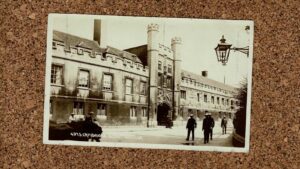The document, which was supposedly released on May 28 – entitled a “study sector brief” – claimed that financial documents from a total of nine banks in Pakistan that were used in visa applications would be rejected, including two of the country’s biggest banks, Allied Bank and and Bank Alfalah.
It also noted that some English language tests – all well-known within the sector – would be rejected for visa approval to the UK, including the Pearson Test of English and IELTS Life Skills.
“We are aware of a fake document being shared, pretending to be from UK Visas and Immigration, claiming certain banks and English language tests are banned from UK student visa applications,” the British High Commission in Pakistan posted on LinkedIn.
“If you receive it, please delete it, do not share it further, and let the person know it is a fake,” it continued.
Multiple agents noted the post in the comments, and former exam director pointed out that one could “tell it’s fake” because of multiple “bad grammar errors”. Some 33 agents and international education professionals shared the post further on the networking site.
If you receive it, please delete it, do not share it further, and let the person know it is a fake
British High Commission in Pakistan
It is not known who created the document or why it was shared, but, indeed, multiple spelling and grammar errors were spotted within the document – including “all concern parties” and the word “recognized” spelt in the American style.
“I asked our universities partners about its authenticity and found that this document is a fake,” Haris Dhanani, an agent based in Pakistan, whose organisation has offices across the country, told The PIE News.
“Even when you see the letter you will find spelling mistakes – Faysal Bank’s spelling was incorrect, as well as one other,” he noted.
He said that calls had been coming in from the students regarding the letter, but that staff within the agency quickly moved to action to quell their anxieties and told them the document was indeed a fake.





